Our History
How we began
In 1994, the vision of a group of dedicated community members became a reality in Pierce County as a place where citizens could resolve day-to-day conflicts in a productive, peaceful manner without ever entering a courtroom.
Prior to that time, the American Leadership Forum Class I worked diligently to engage the community, secure the county and local courts’ commitment, while developing the volunteer corps to launch this organization.
That year, in consultation with the local Bar Association, they created The Pierce County Center for Dispute Resolution (PCCDR, now CDR) as an alternative forum for resolving civil disputes.
Our goals
CDR was designed to achieve three basic goals, all with a positive impact on the community: offer an alternative to court-based solutions, broaden understanding of conflict resolution and empower people to reclaim their ability to resolve their own conflicts.
The need for access to justice
Access to justice is critical to the well-being of civil society. Traditionally, this balance was maintained through community-based conflict resolution systems, but these efficient, intuitive methods have been largely replaced over time by highly formalized, often intimidating, legal systems.
The processes have become so complicated that costly professional representation is usually required for meaningful participation and courts are overwhelmed by the demand for services. For those citizens lacking knowledge and resources, the fundamental need for access to justice is often unmet, the solutions are unaffordable or unattainable.
A sliding fee scale
For the last two decades, CDR has been able to help community members overcome these obstacles, reopening pathways to resolution by offering a simpler way of solving problems at a fraction of the cost of litigation. One of our highest priorities has been the provision of services on a sliding fee scale to ensure accessibility for all. CDR coordinates closely with the legal system; over the years we have proven to be a reliable partner in helping the courts reduce the daunting backlog of cases.
Community as mediators
The CDR approach is based on the profound understanding that mediation processes fulfill a collective societal need for productive problem-solving, as well as addressing the fundamental desire of an individual to pursue resolution.
Ordinary citizens become professionally trained as certified mediators who provide impartial facilitation of communication between disputing parties so that they can agree upon the best resolution.
With the proper assistance, setting, and knowledge, the parties use this forum to address their conflicts. This is a profound shift from the courtroom to the neighborhood, from the relinquishment of control to individual empowerment.
Volunteers as community
From its inception, CDR’s structure has been rooted in the community and, incredibly, its life force is generated by volunteers. The organization rigorously trains more than 60 volunteer mediators per year and maintains an active, on-call mediator corps of 140 mediators available to facilitate as parties resolve their own disputes.
Presently, the Center averages 30 mediation sessions per month in our facility.
Solution for court-mandated mediations
CDR mediators are also present at the District Court for court-mandated Small Claims and Settlement Conference mediations. District Court administrators estimate that only 25% of small claims filed require a judge to preside over the resolution. That means an astonishing 75% of these problems are resolved in ways that are far less costly and stressful for both the participants and the perpetually underfunded system.
CDR has worked to address this problem, fulfilling court-mandated mediation needs at District and Superior court levels and diverting even more cases away from the already crowded courts.
Mediation as a skill within the community
The effects of our work are felt not just in the court or behind the closed doors of mediation rooms, but also throughout the community as volunteer mediators and citizens apply their skills every day in their own organizations, neighborhoods, churches, and workplaces.
In addition to mediation training, we offer public communication and facilitation trainings, and professional development for continued learning among our volunteers. We also offer opportunities for interns, work-study students, and non-mediator
volunteers to learn about mediation and community building through collaboration. This type of community impact over time is subtle yet the overarching cultural shift is significant.
Mediation increased revenue of local organizations
In 2013, the Center’s staff and board developed a multi-year business plan for delivering new services at the community organizational level by assisting with difficult conversations occurring in the work environment, customer relations, and between partnering organizations.
By 2014, CDR successfully implemented these consulting services that have helped local organizations flourish by providing tools and support that allow them to resolve these types of conflicts and work collaboratively. Resulting increases in revenue helped ensure the preservation and innovation of essential services in accordance with high professional and ethical standards.
Mediation centered on dialog, not dispute
During our 20th anniversary celebration in 2014, CDR sought feedback on why some referred to the Pierce County Center for Dispute Resolution as the “region’s best-kept secret”. Members of the community told us the negative word “dispute” did not truly describe our affirming, transformative services.
In response, we formally changed our name to the Center for Dialog & Resolution (CDR) and are now proud to help people reach agreements through Dialog & Resolution. We also incorporated ideas on the need for better accessibility and larger facilities.
On September 1st, 2016, the Center for Dialog & Resolution moved to a new location at 717 Tacoma Ave S, Tacoma WA, 98402.
Every day we are working together to transform our community into a place where citizens have the tools and the power to resolve day-to-day conflicts in a productive, peaceful manner.














